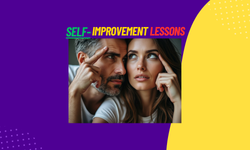Harness EQ for Stronger Relationships and Greater Success
Emotional Quotient (EQ), often referred to as emotional intelligence, is the secret sauce behind thriving relationships and achieving success in both personal and professional spheres. Unlike IQ, which measures cognitive abilities, EQ is about understanding and managing your emotions while empathizing with others. By mastering EQ, you can build deeper connections, navigate conflicts with ease, and unlock doors to career and personal growth.
In this blog post, I’ll share practical tips on how to harness your emotional quotient to foster better relationships and pave the way for success—all while keeping it real and relatable.
What Is Emotional Quotient (EQ)?
Emotional Quotient measures your ability to recognize, understand, and manage your emotions, as well as interpret and respond to the emotions of others. It’s made up of four key components:
- Self-Awareness: Knowing your emotions and their triggers.
- Self-Management: Controlling impulsive reactions and staying composed under pressure.
- Social Awareness: Empathizing with others and picking up on social cues.
- Relationship Management: Building and maintaining strong, healthy relationships.
High EQ isn’t about suppressing emotions—it’s about using them wisely to connect and succeed. Ready to level up your EQ game? Let’s dive into actionable ways to apply emotional intelligence in your life.
1. Boost Self-Awareness to Understand Your Emotional Triggers
The first step to improving your EQ is knowing yourself inside out. Self-awareness helps you identify what sets you off—whether it’s a snarky comment from a coworker or a misunderstanding with your partner. When you understand your emotional triggers, you can respond thoughtfully instead of reacting impulsively.
How to Practice Self-Awareness:
- Journal Your Emotions: At the end of each day, jot down moments when you felt strong emotions—anger, joy, frustration. What caused them? Look for patterns.
- Pause and Reflect: Before responding in a heated moment, take a deep breath and ask yourself, “Why am I feeling this way?”
- Seek Feedback: Ask trusted friends or colleagues how they perceive your emotional reactions. Their perspective can reveal blind spots.
By getting to know your emotional landscape, you’ll make better decisions and avoid unnecessary conflicts, setting the stage for stronger relationships.
2. Master Self-Management for Calm Under Pressure
Ever snapped at someone and regretted it later? We’ve all been there. Self-management is about keeping your cool, even when emotions run high. This skill is a game-changer in relationships and professional settings, where staying composed can earn you respect and trust.
Tips for Self-Management:
- Practice the 10-Second Rule: When you feel triggered, count to 10 before responding. This gives you time to choose a constructive reaction.
- Use Positive Self-Talk: Replace thoughts like “I can’t handle this” with “I’ve got this, and I’ll figure it out.”
- Adopt Stress-Relief Habits: Regular exercise, meditation, or even a quick walk can help you regulate emotions and stay balanced.
By managing your emotions effectively, you’ll project confidence and reliability, making you a magnet for meaningful connections and opportunities.
3. Cultivate Social Awareness to Connect Deeply
Social awareness is all about tuning into others’ emotions and understanding their perspectives. It’s the foundation of empathy, which is critical for building trust and rapport in relationships—whether with friends, family, or colleagues.
How to Build Social Awareness:
- Listen Actively: Put away distractions, make eye contact, and truly hear what others are saying. Nod or paraphrase to show you’re engaged.
- Observe Nonverbal Cues: Pay attention to body language, tone, and facial expressions. These often reveal more than words.
- Ask Open-Ended Questions: Instead of “Are you okay?” try “What’s been going on with you lately?” This invites deeper sharing.
When you show genuine empathy, people feel valued and understood, which strengthens bonds and opens doors to collaboration and success.
4. Excel in Relationship Management for Lasting Connections
High EQ shines in how you handle relationships. Whether it’s resolving conflicts, giving feedback, or inspiring others, relationship management is where emotional intelligence turns into action. Strong relationships are the backbone of personal happiness and career growth.
Strategies for Relationship Management:
- Communicate Clearly and Kindly: Be honest but tactful. For example, instead of saying, “You messed this up,” try, “Let’s work together to fix this.”
- Resolve Conflicts Constructively: Focus on solutions, not blame. Acknowledge the other person’s feelings and find common ground.
- Celebrate Others’ Successes: Show genuine enthusiasm for others’ achievements. A simple “I’m so proud of you!” goes a long way.
By nurturing relationships with care and respect, you create a network of support that fuels both personal fulfillment and professional success.
Why EQ Matters for Success
High emotional quotient isn’t just about being “nice”—it’s a proven driver of success. Studies show that people with strong EQ are more likely to:
- Excel in leadership roles by inspiring and motivating teams.
- Build resilient personal relationships that withstand challenges.
- Handle workplace stress and adapt to change effectively.
- Earn trust and loyalty from colleagues, clients, and friends.
In fact, research from Harvard Business Review suggests that EQ accounts for nearly 90% of what sets high performers apart in leadership roles. Whether you’re aiming for a promotion, stronger friendships, or a happier family life, EQ is your superpower.
Practical Steps to Improve Your EQ Today
Ready to put EQ into action? Here are some quick, SEO-friendly tips to start boosting your emotional intelligence right now:
1. Practice Mindfulness: Spend 5 minutes daily meditating to sharpen self-awareness.
2. Seek Feedback Regularly: Ask for constructive input from mentors or loved ones.
3. Read Emotional Intelligence Books: Classics like Emotional Intelligence 2.0 by Travis Bradberry and Jean Greaves are great starting points.
4. Join a Workshop or Course: Online platforms like Coursera offer EQ-focused courses.
5. Reflect on Interactions: After conversations, think about what went well and what you could improve.
Final Thoughts: Unlock Your Potential with Emotional Quotient
Emotional intelligence isn’t something you’re born with—it’s a skill you can develop with practice. By focusing on self-awareness, self-management, social awareness, and relationship management, you can transform your relationships and set yourself up for success. Start small, stay consistent, and watch how your newfound EQ opens doors to deeper connections and greater achievements.
What’s one step you’ll take today to boost your emotional quotient? Share your thoughts in the comments below, and let’s keep the conversation going! I hope my blog, how to use emotional quotient (EQ) for success, helps. Thanks for reading. See you next time. Take care! 🙂




